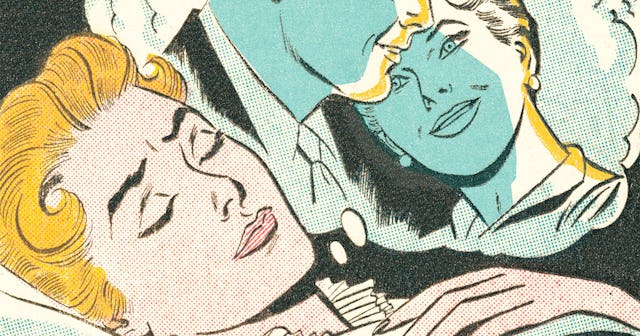Can Our Dreams Predict The Future?

The superpower I’d choose, if I was ever given the chance to choose one, would be predicting the future. I’d like to know what happens next. If you’d asked me a few years ago, I might have chosen something else, but after the last dozen curveballs life has thrown my way, I think I’d like the ability to know what to expect. If not for the chance to prepare, then at the very least for the chance to brace myself.
As it turns out, I may not have to wait for some superior being to grant me this superpower. I may already have it — and you may, too. Déjà rêvé, which translates to “already dreamed” is more common than we think. Some studies suggest that up to one-third of people have experienced precognitive dreams — dreams that predict the future in some way. Informal surveys conducted by Psychology Today put that number even higher.
Maybe it’s coincidence. Maybe it’s magic.
Or, maybe it’s science.
The Science Behind Future-Telling Dreams
In an interview with HelloGiggles, clinical psychologist Dr. John Mayer confirmed that science, rather than magic or the supernatural, was behind predictive dreams.
“The thoughts and images of our dreams are made up of data that has been gathered by our waking perception and stored in our memory,” Dr. Mayer said. “When dreams appear to predict the future, it is because the dreams are analyzing these facts and making ‘educated guesses’ about upcoming life events.”
He notes that we make connections between events and educated guesses about the future all the time while awake, and this isn’t really different. In fact, while we sleep, our brains might be able to make connections we’d fail to make while we’re awake.
Our Dreams May Be Able To Predict The Future, Although Not Exactly In The Way We’d Like.
Sidarta Ribeiro, Ph.D., neuroscientist and author of The Oracle of the Night: The History and Science of Dreams, confirmed to Mindbodygreen that dreams do have the capacity to foreshadow the future but not in a “let’s take a nap and go play the lotto” kind of way. It’s more of a “here are some possible scenarios, based on what we know has happened before” way.
“It’s not a deterministic oracle that can predict what’s going to happen,” he said, “but rather it’s a very sophisticated, probabilistic, neurobiological machine that’s based on what happened in the past — and simulates possible futures.”
Possible futures is less exciting than actual futures, but it’s also better than nothing.
Famous Examples Of Precognitive Dreams
Throughout history, there have been a few stunning examples of dreams predicting the future.
Most notably, the Aberfan landslide. In 1966, a landslide buried and killed about 150 adults and kids inside a school. Later, when psychiatrist John Baker visited the town, he learned that many residents had dreamed the disaster before it happened, including some of the children who’d died in the horrible event.
Likewise, Abraham Lincoln dreamed his own death. Before he was assassinated, he described a dream wherein he found himself dead and lying in state in the East Room. The dream (nightmare?) became reality about two weeks later.
Carl Jung also famously reported predictive dreams — one about his mother’s death and another that seemed to predict the start of World War I.
On the one hand, it’s easy to point to these examples as proof that dreams can predict the future. That something supernatural exists. On the other hand, it’s even easier to say these dreams support the idea that it’s just science — if it can ever be “just” science. In all three cases noted above, the dreamers may have been reacting to cues, sights, or pieces of information gathered throughout the course of the day and then placed into a brand new order at night.
Future-Telling Or Coincidence — Either Way You Need A Good Night Sleep
Unfortunately, dreams can’t predict the future in a definitive way. Your brain can guess what may happen based on information you’ve gathered while awake, and sometimes the dreams it creates overnight predict the future shockingly well. Sometimes they don’t. None of that is magic, though, either way, it’s worth the effort to get a good night’s sleep.
Some of the best ways to do that are to keep a consistent sleep schedule, avoid electronics at night, keep your sleeping room dark and cool, stay away from food or alcohol around bedtime, and find ways to relax — whether that’s through meditation, music, or something entirely your own that’s not doomscrolling on social media. (Take it from me — this is a terrible pre-bedtime choice.)
Ultimately, I’d love to know what comes next. If that’s not possible, then I’ll take a good night’s sleep and handful of predictive guesses.
This article was originally published on